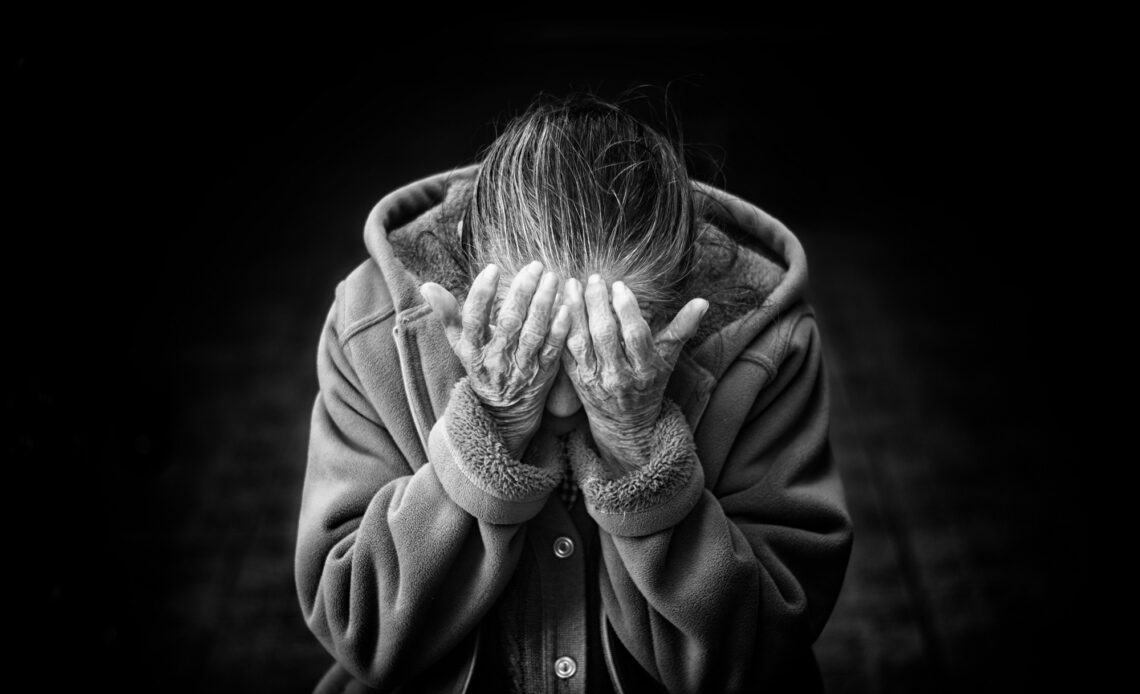Dealing with grief and loss is an inevitable part of the human experience that can profoundly impact mental health. Grief, often triggered by the loss of a loved one, the end of a relationship, or the shattering of a dream, can evoke a range of intense emotions. These emotions, if left unaddressed, can lead to long-term mental health challenges. Understanding the interconnectedness of grief and mental well-being is crucial for effectively navigating the grieving process and fostering resilience.
Understanding Grief and Loss
Grief is a complex emotional response to loss, encompassing feelings of sadness, anger, guilt, and confusion. It is a deeply personal experience that varies in intensity and duration for each individual. The process of grieving is not linear; it involves navigating through different stages such as denial, anger, bargaining, depression, and acceptance. Each stage presents unique challenges and requires time and self-compassion to work through.
Grief can manifest physically, emotionally, and mentally, affecting one’s overall well-being. It is essential to acknowledge that grief is a natural response to loss and that suppressing these emotions can have detrimental effects on mental health. By recognizing and accepting one’s grief, individuals can begin the healing process and take proactive steps towards coping with their emotions.

Coping with loss involves acknowledging the pain, expressing emotions, and finding healthy ways to honor the memory of what or who has been lost. It is also essential to recognize that grief is not a sign of weakness but a testament to the depth of one’s emotions and connections. Seeking support from loved ones, friends, or mental health professionals can provide comfort and guidance during this challenging time.
The Impact of Grief on Mental Health
The emotional turmoil experienced during grief can have a profound impact on mental health. Prolonged grief can lead to symptoms of anxiety, depression, and even post-traumatic stress disorder (PTSD). The constant cycle of rumination, guilt, and sadness can disrupt one’s daily life, relationships, and overall sense of well-being.
Moreover, unresolved grief can contribute to the development of maladaptive coping mechanisms such as substance abuse, isolation, or self-harm. These behaviors serve as temporary distractions from the pain but do not address the underlying emotional wounds. Recognizing the signs of deteriorating mental health during grief is crucial for seeking timely intervention and support.
It is important to remember that healing from grief is a gradual process that requires patience and self-compassion. By acknowledging the impact of grief on mental health, individuals can take proactive steps to prioritize their well-being and seek help when needed. Engaging in self-care practices, seeking therapy, and connecting with support groups can facilitate the healing journey and promote mental resilience.
Common Reactions to Grief and Loss

Grief elicits a wide range of emotional responses that are unique to each individual. Common reactions to grief include feelings of numbness, disbelief, anger, guilt, and profound sadness. These emotions may fluctuate in intensity and frequency, making it challenging to predict how one will respond to loss.
Some individuals may experience physical symptoms such as fatigue, insomnia, loss of appetite, or aches and pains. These physical manifestations of grief are a result of the body’s stress response to emotional distress. It is essential to address these physical symptoms through self-care practices such as exercise, proper nutrition, and adequate rest.
Social withdrawal is another common reaction to grief, as individuals may feel overwhelmed by their emotions and find it difficult to interact with others. While it is important to respect one’s need for solitude, maintaining social connections and seeking support from loved ones can help alleviate feelings of isolation and loneliness. Sharing memories, thoughts, and emotions with others can provide comfort and validation during the grieving process.
Coping Mechanisms for Dealing with Grief
Coping with grief involves developing healthy strategies to process emotions, honor the memory of the lost loved one, and rebuild a sense of purpose and meaning in life. While the grieving process is unique to each individual, there are several coping mechanisms that can facilitate healing and emotional resilience.
Expressive writing, such as journaling or writing letters to the deceased, can be a therapeutic way to externalize emotions and thoughts. Engaging in creative activities such as art, music, or gardening can also provide a channel for self-expression and catharsis. Physical exercise, mindfulness practices, and relaxation techniques can help reduce stress and promote emotional well-being.
Seeking support from a therapist or counselor trained in grief counseling can provide valuable insights and tools for navigating the complexities of grief. Therapy offers a safe space to explore emotions, gain perspective on the grieving process, and develop coping skills for managing distress. Support groups comprised of individuals who have experienced similar losses can also offer a sense of community and understanding.
Seeking Support for Grief and Mental Health

Seeking support for grief and mental health is a crucial step towards healing and resilience. While the journey of grief is deeply personal, connecting with others who can empathize and provide guidance can be immensely beneficial. Friends, family members, religious leaders, or mental health professionals can offer different forms of support based on individual needs.
Support groups specifically tailored to individuals grieving a loss can offer a sense of belonging and understanding. Sharing experiences, challenges, and coping strategies with others who are on a similar journey can validate one’s emotions and provide a sense of solidarity. These groups create a safe space for individuals to express themselves without fear of judgment or stigma.
Therapy is another valuable resource for individuals struggling to cope with grief and its impact on mental health. A therapist trained in grief counseling can offer a non-judgmental and supportive environment to explore emotions, process thoughts, and develop coping mechanisms. Therapy sessions can provide individuals with tools to navigate the grieving process and build emotional resilience.
Professional Help for Coping with Grief and Loss
Professional help is often necessary for individuals experiencing complicated grief or struggling to cope with the emotional toll of loss. Mental health professionals, including therapists, counselors, and psychologists, are trained to provide evidence-based interventions and support for individuals navigating grief and loss.
Therapy sessions can help individuals explore the root causes of their grief, identify maladaptive coping mechanisms, and develop healthy strategies for managing emotions. Cognitive-behavioral therapy (CBT), mindfulness-based interventions, and grief counseling techniques can be effective in promoting emotional healing and resilience. Therapists can also provide guidance on self-care practices, stress management, and emotional regulation.
In some cases, medication may be prescribed to help individuals manage symptoms of anxiety, depression, or insomnia related to grief. Psychiatric evaluation and medication management can be beneficial for individuals experiencing severe mental health symptoms that interfere with daily functioning. Medication should always be prescribed and monitored by a qualified healthcare professional.
Self-Care Strategies for Managing Grief and Mental Health
Self-care is essential for maintaining mental well-being during the grieving process. While grief can be all-consuming, taking care of oneself is crucial for emotional resilience and healing. Self-care practices help individuals cope with the intense emotions of grief, reduce stress, and promote overall well-being.
Physical self-care involves prioritizing adequate sleep, nutrition, and exercise to support the body’s healing process. Engaging in regular physical activity, eating a balanced diet, and getting enough rest can help regulate mood, improve energy levels, and enhance overall health. Avoiding substances such as alcohol or drugs is also important for managing grief-related stress.
Emotional self-care focuses on acknowledging and processing emotions in a healthy way. This may involve journaling, talking to a trusted friend or therapist, or engaging in creative activities to express feelings. Setting boundaries with oneself and others, practicing self-compassion, and allowing time for reflection are essential components of emotional self-care.
Social self-care emphasizes the importance of maintaining connections with loved ones and seeking support from a strong support network. While grief may lead to social withdrawal, reaching out to friends, family members, or support groups can provide comfort, understanding, and a sense of community. Connecting with others who have experienced similar losses can offer validation and empathy.
The Role of Therapy in Grief and Loss

Therapy plays a vital role in helping individuals navigate the complexities of grief and loss. A therapist trained in grief counseling can offer a safe and supportive space to explore emotions, process thoughts, and develop coping strategies. Therapy sessions provide individuals with tools to manage distress, gain perspective on their grief, and foster emotional resilience.
Cognitive-behavioral therapy (CBT) is a commonly used therapeutic approach for addressing maladaptive thought patterns and behaviors associated with grief. CBT helps individuals identify and challenge negative beliefs, develop healthy coping mechanisms, and build emotional regulation skills. Mindfulness-based interventions, such as meditation and relaxation techniques, can also help individuals stay present and manage overwhelming emotions.
Group therapy can be particularly beneficial for individuals seeking connection and support from others who are also grieving a loss. Group sessions create a sense of community, validation, and understanding among participants. Sharing experiences, challenges, and coping strategies with peers can help individuals feel less isolated and more supported in their grief journey.
Resources for Grief Support and Mental Health Assistance
Numerous resources are available to support individuals coping with grief and seeking mental health assistance. Local mental health organizations, hotlines, and online platforms offer a range of services and information for those in need. These resources provide access to support groups, counseling services, educational materials, and crisis intervention.
Grief support groups, both in-person and online, offer a safe space for individuals to share their experiences, connect with others, and receive guidance from trained facilitators. These groups provide emotional support, coping strategies, and a sense of community for individuals navigating the complexities of grief. Participating in support groups can help individuals feel less alone and more understood.
Therapist directories and mental health websites can help individuals find qualified professionals specializing in grief counseling and mental health support. These resources offer information on therapists’ credentials, specialties, and approaches to therapy. Seeking therapy from a licensed professional can provide individuals with personalized support and evidence-based interventions for managing grief.
Conclusion
Navigating grief and loss is a deeply personal and challenging journey that can significantly impact mental health. Understanding the interconnectedness of grief and mental well-being is essential for developing effective coping strategies, seeking support, and fostering resilience. By acknowledging the emotional complexities of grief, individuals can take proactive steps to prioritize their mental well-being and heal from loss.
Remember that grief is a natural and valid response to loss, and seeking support is a sign of strength, not weakness. Whether through self-care practices, therapy, support groups, or reaching out to loved ones, there are numerous resources available to help individuals cope with grief and maintain mental well-being. By taking care of oneself and seeking assistance when needed, individuals can navigate the grieving process with compassion, resilience, and hope.


